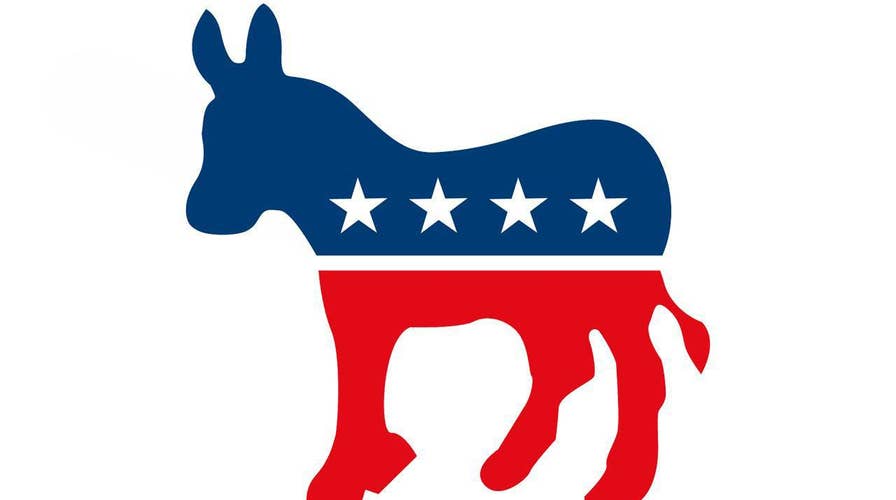The field of Democratic presidential hopefuls is growing each day. It is an exciting time for the party as our pool of candidates has become increasingly diverse. It is only January and nine candidates have already declared. No less than 23 people are being talked about as potential contenders for the party’s nomination.
The Democratic primary is shaping up to be a contest between individuals of all ages and genders, from different racial and ethnic backgrounds, who adhere to a variety of faith traditions. It is clear to me that Hillary Clinton and Barack Obama paved the way for a new generation of women and people of color who now see that the White House could be within their reach too.
That is a great thing for our country. But, while enthusiasm and interest are high on the Democratic side, we must be careful if we really want to beat President Donald Trump. Too many candidates might be too much of a good thing.
IF YOU'RE A DEMOCRAT RUNNING FOR PRESIDENT, AN APOLOGY IS THE TICKET TO THE STARTING GATE RIGHT NOW
Here’s why:
Let’s start from the premise that, at this point, the Democratic nomination is completely up for grabs, in part because there are so many candidates, but also because of several other complicating factors.
First, the Democratic National Committee (DNC) went through a major overhaul of their presidential nomination process in the wake of the Hillary Clinton-Bernie Sanders faceoff in 2016. As of 2018, the 3,200 available Democratic delegates are allocated to each of the states by a formula designed by the DNC.
The party also reduced the number of so-called “superdelegates” by 60 percent. This group had historically been comprised of elder statesmen and large donors associated with the party establishment, along with sitting elected officials. In 2016, these “unpledged” delegates were viewed by some as rigging the nomination for Hillary Clinton. Fewer superdelegates could mean someone like Joe Biden has a harder path to victory.
Second, big states like California and Texas are making moves to change the dates of their primary elections. Moving these races to earlier in the process means these delegate-rich states could favor their own native daughters and sons, like Kamala Harris and Beto O’Rourke.
But the third point further complicates this already convoluted process. The Democratic Party allocates delegates proportionately, rather than on a winner-takes-all basis. This means that while larger states may have more delegates, one person doesn’t necessarily end up taking home the whole prize. To be successful, someone will likely have to execute a 50 state strategy in order to scrape together enough delegates to win the nomination.
A crowded field could result in major fights to win very small pieces of the delegate pie. Democrats will need to figure out how to appeal to primary voters in both liberal strongholds like California and New York, and in more moderate places like the South and Midwest, in order to maximize their individual delegate counts. That could get tricky.
Finally, not all states have the same primary or caucus voting rules. Some states have open primaries, meaning it is possible to choose your party at the time of the election, while others have closed primaries, meaning that one must declare his or her party well before the primary vote takes place.
Why is this relevant? Because it is an issue that has caused heartburn for progressives who complain that closed primaries put campaigns that rely on grassroots enthusiasm at a disadvantage. States with closed primaries could spell trouble for less-experienced campaign operations or those who may benefit from late-breaking momentum.
Internal party politics are mind-numbing and disconnected from Main Street America. But they can and will have an impact on the average voter’s choice for president in the 2020 general election. Such a wide field provides many options to the Democratic primary electorate. But with more options comes more risk that the Democratic Party could become increasingly factionalized.
Internal divisions born from the wake of multiple losing campaigns could result in a family feud where Democrats sit home because their ideal candidate did not win the nomination. We saw this happen with some Bernie Sanders supporters in 2016. That trend could be amplified in this increasingly crowded field. A fractured party with divided loyalties and lacking a cohesive policy message could put the Democratic nominee at a disadvantage against Donald Trump.
CLICK HERE TO GET THE FOX NEWS APP
Here is my advice to Democrats: If the goal is to beat President Trump, develop a succinct message. Reclaim the economic message on fair trade that Trump coopted from Democrats in 2016. Focus on health care issues that resonated well in the 2018 midterm elections.
Remember that the 2020 electoral map is the same as the one that elected Donald Trump. Since the Democratic candidate will have to campaign in and win states that Trump won in 2016, simply being the anti-Trump isn’t going to cut it.
And most importantly, rally around whoever makes it out of this crazy primary process. Democrats are stronger when they’re united, and they can’t let the perfect get in the way of the good if they want to win the White House in 2020.





















